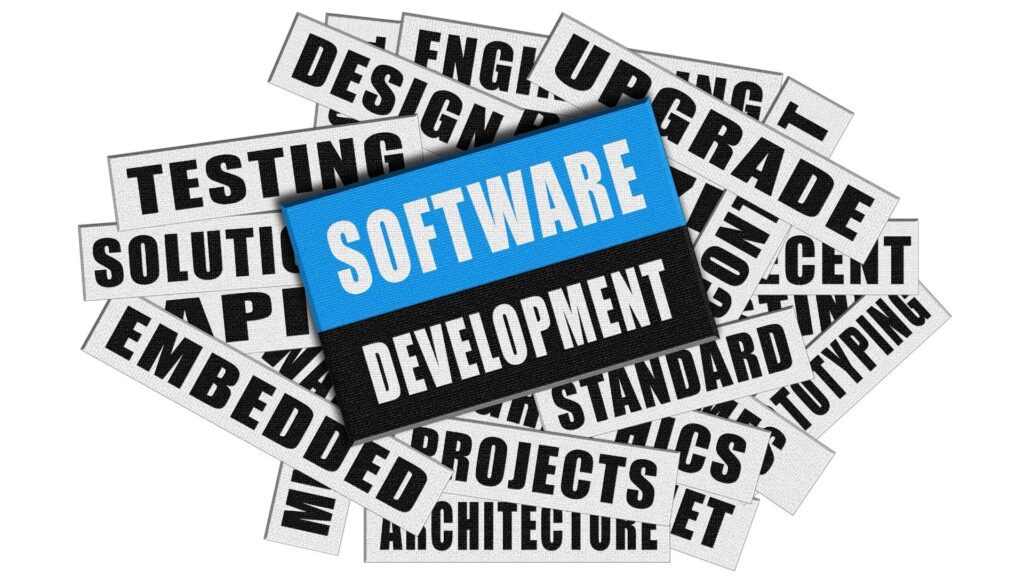Whether you’re shopping for groceries online, attending a virtual seminar, or listening to a podcast, the software has become an integral part of your daily life. It’s become so widespread that it’s difficult to imagine a future without apps. The apps we use on a daily basis are created by software engineers.
We need them everywhere!
A software engineering career necessitates an extensive understanding of coding, development tools and engineering ideas.
The field of Software Development is on the rise and there is no sign of it slowing down anytime soon. This industry has undergone a significant increase in the previous decade due to increasing globalisation and digitalisation and the demand is constantly expanding.
Every day, new technology is launched to make our lives better and easier. Many beginners are unaware of the numerous employment prospects available in this field.
So, if you’ve ever wondered what it takes to become a Software Engineer, this can be your guide. This article talks about what software engineers do, the different job titles in this field. You’ll also learn about the skills required for employment and the various educational pathways available to you if you feel this is the appropriate career for you.
What does a Software Engineer do?
Software engineers apply engineering principles and coding to build software products. Examples include mobile applications, web applications, operating systems and networking systems. The final software product should meet the user requirements.
Firstly, software engineers capture user requirements and specifications. Accordingly, software systems are designed and developed. Once the software package is ready, there comes testing, deployment to various devices, and maintenance.

Responsibilities of a Software Engineer
- Meet users/customers to understand their needs and provide continuous updates
- Design and develop software as per specifications given by the customers
- Testing software systems, identifying bugs, bug fixes and maintenance
- Collaborate with different teams
- Monitor existing systems and work on enhancements as and when needed
- Be updated about growing technology
A software engineer is involved in software development, but not all software developers are engineers. So a software engineer has a greater responsibility because he is the one who is responsible for building a product that functions properly for its end-users or clients.
Read on as we explain some of the software engineering job titles.
Tell-Tale of Software Engineering job titles:
- When you watch a series online, let’s consider Netflix here. The user interfaces, i.e. your experience on that website and the interaction with the computer when using the website or application, is something a Front-end Engineer works on.
- You can see these series on web applications because servers are put in place to handle back-end functionalities. Whether it is databases, the functionality of shopping carts and secure payment systems. Here comes the job of Back-end Engineer.
- Now talking about ‘Do it all’ individuals. Though these two jobs are separate in various companies. Some may even have one person having both the skill set and taking responsibility for front-end and back-end development, known as a Full-stack Engineer. So from the user interface to technical aspects, everything is being looked after in full-stack development.
- Now, if you are wondering how all this is replicated in smartphones. The apps enable us to watch the same content streamed on a web portal. This is made possible by Mobile App Engineers. An understanding of Android and iOS and making apps that will be functional on other devices is what mobile engineers do. Next time you are hooked on a smartphone binge-watching series on the weekend, you know who to thank.
- When users interact with a website or app, there is a huge amount of data generated. This data can be utilised (remember your Netflix recommendation) to make informed business decisions. Who takes care of this data? This data needs to be stored, organised and analysed. This comes under the responsibility of Data Engineers.
- Once everything mentioned above is in place, someone needs to look into development and operations. Someone who oversees the entire process of code release, and deployment of applications on various devices. This is taken care of by DevOps Engineers.
- Apart from the job titles mentioned above, there are some others too, such as ‘Software Testing’. They perform testing of the developed software, identify bugs, and ensure bug-free and efficient software.
- As the security of any software is an essential part, how can we forget security engineers who work to safeguard software from cyber threats/hackers.
Should I become a Software Engineer?
If you are ‘into learning‘ and have a creative and analytical mind, the software development field is worth considering. This career has numerous opportunities; if you are a lifelong learner and always up for a challenge to bring efficient systems and solutions to the table, this is probably your calling.
How to become a Software Engineer?
- First things first – Research the software development field and talk to professionals who can give you insights into the field. There are several resources online. Here we have curated the best of them to help you better understand the field. Check out Introductory Resources and YouTube Channels
- Learn programming languages – Learn one at a time: select a language like Python, JavaScript, C++, or HTML. For example, you can learn basic HTML from blog posts or tutorials and master it. These Free Video Courses and Online Courses can help you kick-start your coding journey.
- Enrol yourself for a Software Engineering course – Undergraduate degree courses offer a structured curriculum. Further, depending upon your interest and skill set, you may choose your specialization.
- Core skills for all software developers – HTML, CSS, JavaScript, SQL, NoSQL, jQuery
- Additional skills for front end developer – Version Control/Git, Bootstrap, Browser Developer Tools
- Additional skills for Back end developer – Python, R, PHP
- Additional skills for Mobile developer – C#, Java, Objective-C
- Learn how to read code created by other Software Engineers to supplement your education. You can become a part of Associations and Communities to keep yourself updated with the latest developments in the field.
- Get hands-on experience in the field where you want to work in the future. You’ll be able to identify possible employment while also improving your abilities. As you apply for jobs, you’ll begin to build a professional network. Apply for Software Engineering internships and participate in Events and Competitions
The job outlook for software engineers
Every company needs an online presence and as tech is ever-evolving, the company has growing tech needs. Software engineers can develop tech tools, automation, web pages and apps that businesses demand.
All key industries such as healthcare, government, finance, education all depend on tech and software developers. If you wish to pursue a career in software development, you also get to choose a field where your interest aligns the most. If it is healthcare or education, you are in a position to contribute to the field you are passionate about.
Whatever field you choose in the software development career, you will be either working for a company or a freelancer or building software packages for your own start-up. As you climb the ladder to senior positions and your experience and skill set can be best utilised for the technical roadmap of the products, you may not have to “code”. Depending upon your interest, future growth and skill set, you could move into a management role overlooking the entire process.
“Whether you want to uncover the secrets of the universe, or you just want to pursue a career in the 21st century, basic computer programming is an essential skill to learn.”
—Stephen Hawking, Theoretical Physicist, Cosmologist, Author

